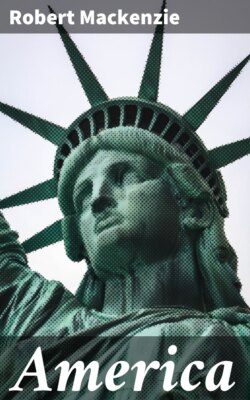Читать книгу America - Mackenzie Robert Shelton - Страница 18
На сайте Литреса книга снята с продажи.
CHAPTER XII.
EARLY GOVERNMENT.
ОглавлениеThere was at the outset considerable diversity of pattern among the governments of the colonies. As time wore on, the diversity lessened, and one great type becomes visible in all. There is a Governor appointed by the King. There is a Parliament chosen by the people. Parliament holds the purse-strings. The Governor applies for what moneys the public service seems to him to require. Parliament, as a rule, grants his demands; but not without consideration, and a distinct assertion of its right to refuse should cause appear. As the Revolution drew near, the function of the Governor became gradually circumscribed by the pressure of the Assemblies. When the Governor, as representing the King, fell into variance with the popular will, the representatives of the people assumed the whole business of government. The most loyal of the colonies resolutely defied the encroachments of the King or his Governor. They had a pleasure and a pride in their connection with England; but they were at the same time essentially a self-governing people. From the government which existed before the Revolution it was easy for them to step into a federal union. The colonists had all their interests and all their grievances in common. It was natural for them, when trouble arose, to appoint representatives who should deliberate regarding their affairs. These representatives required an executive to give practical effect to their resolutions. The officer who was appointed for that purpose was called, not King, but President; and was chosen, not for life, but for four years. By this simple and natural process arose the American Government.
At first Virginia was governed by two Councils, one of which was English and the other Colonial. Both were entirely under the King’s control. In a very few years the representative system was introduced, and a popular assembly, over whose proceedings the Governor retained the right of veto, regulated the affairs of the colony. Virginia was the least democratic of the colonies. Her leanings were always towards monarchy. She maintained her loyalty to the Stuarts. Charles II. ruled her in his exile, and was crowned in a robe of Virginian silk, presented by the devoted colonists. The baffled Cavaliers sought refuge in Virginia from the hateful triumph of Republicanism. Virginia refused to acknowledge the Commonwealth, and had to be subjected by force. When the exiled House was restored, her joy knew no bounds.
The New England States were of different temper and different government. While yet on board the Mayflower, the Pilgrims, as we have seen, formed themselves into a body politic, elected their Governor, and bound themselves to submit to his authority, “confiding in his prudence that he would not adventure upon any matter of moment without consent of the rest.” Every church member was an elector. For sixty years this democratic form of government was continued, till the despotic James II. overturned it in the closing years of his unhappy reign. The Pilgrims carried with them from England a bitter feeling of the wrongs which Kings had inflicted on them, and they arrived in America a people fully disposed to govern themselves. They cordially supported Cromwell. Cromwell, on his part, so highly esteemed the people of New England, that he invited them to return to Europe, and offered them settlements in Ireland. They delayed for two years to proclaim Charles II. when he was restored to the English throne. They sheltered the regicides who fled from the King’s vengeance. They hailed the Revolution, by which the Stuarts were expelled and constitutional monarchy set up in England. Of all the American colonies, those of New England were the most democratic, and the most intolerant of royal interference with their liberties.
New York was bestowed upon the Duke of York, who for a time appointed the Governor. Pennsylvania was a grant to Penn, who exercised the same authority. Ultimately, however, in all cases, the appointment of Governor rested with the King, while the representatives were chosen by the people.
